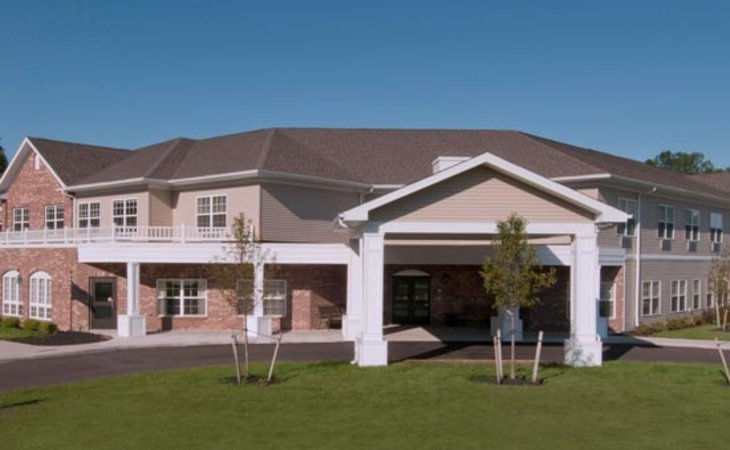Producing a Safe and Supportive Setting: In-Home Memory Care Fundamentals
Developing a protected and caring atmosphere for individuals calling for in-home memory treatment is extremely important to their wellness and high quality of life. From making sure security within the space to utilizing effective interaction methods and implementing memory-friendly layout aspects, there are important components that add to an alternative care technique. By focusing on producing a helpful ecosystem that provides to the unique demands of those with memory impairments, caregivers can significantly improve the daily experiences of their liked ones.

Safe Living Setting
Developing a hazard-free and protected living atmosphere is extremely important when providing in-home memory care for individuals with cognitive disabilities. Making sure the safety and security of the private with memory loss is critical to prevent accidents and promote a sense of well-being.
Furthermore, using modern technology such as movement sensing units and alarm systems can alert caregivers if the private wanders or is in distress. By focusing on safety and security measures and removing prospective risks, caregivers can supply a helpful and safe and secure atmosphere for individuals with cognitive impairments receiving at home memory treatment.
Reliable Communication Techniques
Implementing customized communication methods is important in cultivating significant interactions with individuals with cognitive problems in the context of in-home memory treatment. Reliable interaction plays an important duty in producing an encouraging environment that improves the well-being and top quality of life for people with memory issues. When connecting with a person experiencing cognitive decline, it is necessary to utilize straightforward and clear language, preserve a tranquility and favorable tone, and offer visual cues to aid understanding.
One trick technique is to practice active listening, revealing empathy, patience, and respect throughout discussions. Non-verbal signs such as faces and body language can also assist share understanding and assistance. Additionally, making use of reminiscence therapy by going over previous experiences or making use of music and art can take advantage of long-lasting memories, stimulating connections and promoting interaction.
In addition, including regular routines and consistent communication patterns can provide a sense of familiarity and safety for people with memory disabilities. By carrying out these interaction approaches, caretakers can establish meaningful connections and advertise a feeling of convenience and rely on the in-home memory treatment setting.
Memory-Friendly Design
Given the significance of developing a supportive environment for people with memory concerns with efficient communication methods, the unification of memory-friendly style aspects in the space becomes necessary in maximizing their day-to-day experiences and total well-being. Memory-friendly design focuses on improving security, convenience, and self-reliance for individuals with cognitive impairments. Straightforward alterations can make a substantial distinction, such as utilizing contrasting colors to boost exposure and decrease complication, integrating clear signs to help navigating, and decreasing clutter to avoid sensory overload.
Incorporating familiar aspects from the person's past, such as individual photos or favorite products, can evoke favorable memories and create a sense of familiarity. By integrating these memory-friendly style aspects, caregivers can supply a encouraging and secure living room that makes it possible for people with memory problems to preserve their independence and quality of life. Charlotte Memory Care.
Daily Regimen Preparation
When establishing a daily regimen for individuals with memory issues, mindful planning is essential to sustain their cognitive function and total health. Establishing an organized schedule can aid minimize anxiety, disorientation, and complication typically experienced by discover this those with memory disabilities.
Adaptability is vital, as some days may need modifications based on the person's state of mind and power degrees. Consistently evaluating and adapting the daily schedule will help guarantee its performance in promoting a positive and reassuring atmosphere for people with memory obstacles.
Support Group Execution
Developing a durable network of helpful individuals plays a crucial duty in boosting the top quality of treatment and wellness for people needing memory support. Member of the family, good friends, health care experts, and area resources can all add to developing a solid support group. Communication among these individuals is necessary to guarantee that the needs of the individual with memory obstacles are fulfilled effectively.
Member of the family are commonly the primary caretakers and develop the backbone of the support group. They offer daily treatment, emotional assistance, and friendship. When required to prevent fatigue and make moved here certain the ideal possible care for their liked one., it is essential for family participants to look for help and reprieve.
Along with family support, including medical care experts such as doctors, specialists, and registered nurses can supply specific treatment and advice. These specialists can provide beneficial insights, medical recommendations, and help in taking care of the individual's condition.

Verdict
Finally, producing a risk-free and encouraging environment for people with memory treatment requirements is important for their wellness. By developing a safe living setting, using reliable interaction techniques, including memory-friendly design aspects, intending everyday regimens, and implementing a solid assistance system, caregivers can aid improve the lifestyle for those with memory loss. These necessary parts work together to develop a nurturing and equipping setting that advertises independence and improves overall lifestyle.
Producing a secure and hazard-free living setting is critical when supplying in-home memory treatment for people with cognitive problems. By focusing on safety measures and removing potential risks, caregivers can supply a supportive and safe and secure atmosphere for people with cognitive problems getting at home memory care.
Developing a durable network of supportive individuals plays a critical duty in boosting the top quality of care and health for people requiring memory assistance - Charlotte Memory Care. Interaction amongst these people is necessary to make sure that the requirements of the individual with memory obstacles are satisfied efficiently
